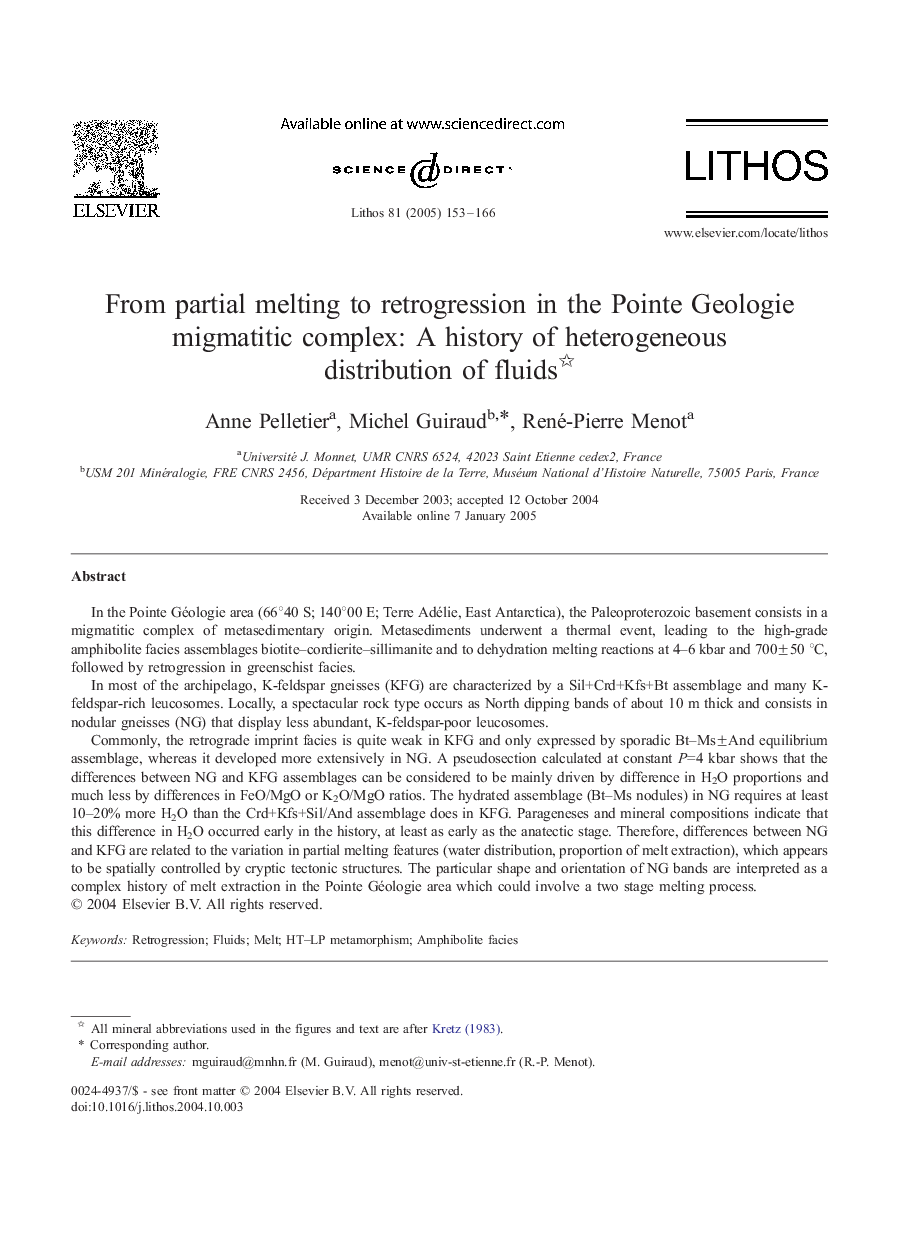| Article ID | Journal | Published Year | Pages | File Type |
|---|---|---|---|---|
| 9531892 | Lithos | 2005 | 14 Pages |
Abstract
Commonly, the retrograde imprint facies is quite weak in KFG and only expressed by sporadic Bt-Ms±And equilibrium assemblage, whereas it developed more extensively in NG. A pseudosection calculated at constant P=4 kbar shows that the differences between NG and KFG assemblages can be considered to be mainly driven by difference in H2O proportions and much less by differences in FeO/MgO or K2O/MgO ratios. The hydrated assemblage (Bt-Ms nodules) in NG requires at least 10-20% more H2O than the Crd+Kfs+Sil/And assemblage does in KFG. Parageneses and mineral compositions indicate that this difference in H2O occurred early in the history, at least as early as the anatectic stage. Therefore, differences between NG and KFG are related to the variation in partial melting features (water distribution, proportion of melt extraction), which appears to be spatially controlled by cryptic tectonic structures. The particular shape and orientation of NG bands are interpreted as a complex history of melt extraction in the Pointe Géologie area which could involve a two stage melting process.
Related Topics
Physical Sciences and Engineering
Earth and Planetary Sciences
Geochemistry and Petrology
Authors
Anne Pelletier, Michel Guiraud, René-Pierre Menot,
